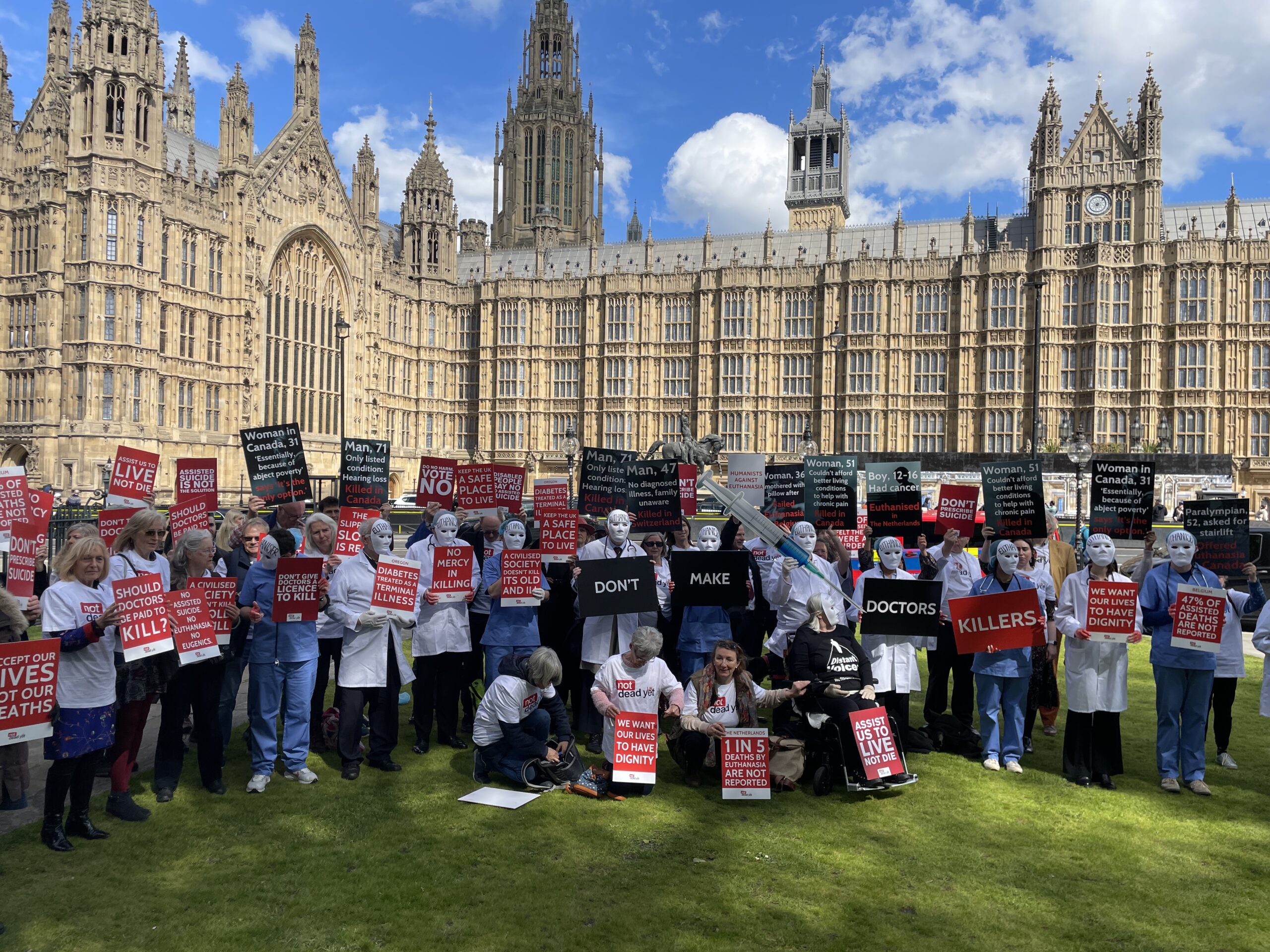Members of Parliament are deeply concerned about inadequate safeguards in Kim Leadbeater’s assisted dying bill for women and those with eating disorders such as anorexia finds a major new poll from Care Not Killing.
The poll, from Whitestone Insight a member of the British Polling Council, found more than seven in 10 (72 per cent) of the 103 MPs surveyed, said that they had been closely following the progress of the bill through committee, while around one in 12, (eight per cent) said they had not, which found significant numbers saying they had concerns about with the bill in its current form.
Asked whether “The bill’s safeguards are sufficient to protect the vulnerable from coercion, 35 per cent agreed, while 41 per cent did not.
A similar proportion, 44 per cent to 38 per cent, expressed concern that the “NHS is not the right service to assist patient deaths equitably and efficiently”.
While half of those surveyed, (50 per cent) expressed concern that “…there may be a disproportionate impact on women in respect of the propensity of some to conditions such as anorexia and to manipulation and abuse by their partners”, only three in 10 (30 per cent) felt this was not a concern.
And 56 per cent, agreed that “safeguards will be liable to undermining by future regulation or practice” was a concern compared to 30 per cent who did not.
Dr Gordon Macdonald, CEO of Care Not Killing welcomed the findings commenting: “What we see is a high level of MP engagement and interest with the assisted dying bill which is encouraging given this really is, in the most literal sense a matter of life and death. We also see that the more MPs hear about assisted suicide the less confident they are that vulnerable and disabled people can be protected from coercion and abuse.
“This is important as this draft legislation was sold to them and members of the public as being the ‘safest in the world’, but all they have seen are important safeguards, including the involvement of the High Court removed, while other amendments designed to protect those with Downs Syndrome or eating disorders such as Anorexia were rejected. No wonder MPs seem to be turning against this bill.”
In a major blow to those championing a change to the law, almost four in ten (38 per cent) of those asked how they intend to vote at Third Reading said against, while 36 per cent said for, 13 per cent undecided, five per cent plan to abstain and eight per cent declined to say.
Interestingly, the poll found that longer-serving, more experienced MPs were more likely to oppose the bill than MPs elected last summer.
The poll also found MPs have high levels of concern about the watering down of safeguards in the Bill. Asked if they agreed with the statement, “Replacing a High Court judge’s oversight of the Assisted Dying Bill with a panel gives me more confidence in it”, 41 per cent disagreed, with just 30 per cent agreeing.
Forty-one per cent of those surveyed did not believe that the bill’s safeguards were sufficient to protect vulnerable people from coercion, with around a third (35 per cent) feeling the safeguards were adequate.
Even more MPs (46 per cent) agreed with the statement: “I worry that the attention given to assisted dying is detracting from a proper focus on how we can improve palliative care”. Thirty-nine per cent disagreed.
More of those surveyed 40 per cent to 38 per cent, agreed with the statement: “Legalising assisted dying should not be a priority for the Government given the imperatives of NHS reform and getting the economy going.”
Dr Macdonald continued: “MPs are seeing the numerous problems with this bill, such assisted suicide being raised with under 18s, applicants being able to shop around for a medic who willing to say they meet the criteria, even if other doctors say they do not, the huge difficulties in diagnosis and prognosis, those with depression or suicidal thoughts being eligible, potential threat to funding of hospices that refuse to take part, the possible use of the private sector in delivering assisted dying and many unanswered questions from who will administer the drugs or other substances such nitrogen gas being left to minister to decide once the bill becomes law.
He concluded: “We should not be surprised that under scrutiny this bill is falling apart, because the lie often advanced by those wanting a change in the law, is that it can be done safely, but the truth is, that there is not a safe system anywhere in the world. Indeed, these proposals are heavily modelled on the US state of Oregon where a majority of those ending their lives cite fear of being a burden on their family, carers or finances as a reason for their decision, while those with conditions most reasonable people would not consider terminal such as anorexia and diabetes can apply to end their lives.
“At a time when access to palliative care and social care remain problematic, with many hospices in financial crisis having to cut services or staff, I would urge MPs to fix these problems before approving a dangerous and ideological law that would put the lives of vulnerable and disabled people at risk exactly as well around the world. We need better care, not state-sanctioned killing.”
MPs deeply concerned at inadequate safeguards in the assisted dying bill for women and those with anorexia finds poll


